Adjourned
Professor Ned Patterson, chair, Senate and Faculty Consultative Committees
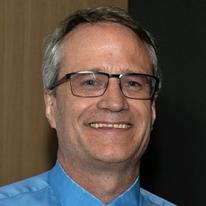
This has been another very challenging semester for all of us, whether we are students, staff members, or faculty. Many topics again came to senate governance. As chair of the Senate and Faculty Consultative Committees (SCC and FCC respectively), I reported three times to the University Senate, addressing a wide range of matters, such as the president’s and provost’s task force on faculty misconduct; processes for the senates to work together even more effectively and transparently; resolutions on graduate student fees; the recommendations of the Task Force on Disability Accommodations in the Learning Environment; Juneteenth becoming a non-instructional day; the new Administrative Policy: COVID-19 Vaccination and Safety Protocol Requirements for University Employees and Student Workers; the work of the Equity Lens Policy Review Committee; the University budget process; a possible subcommittee of the Senate Committee on Faculty Affairs (SCFA) on fixed-term (contract) faculty and teaching and research academic professionals; and an FCC-sponsored town hall in February and related FCC Faculty Design Thinking Forum: The Future of the Faculty Experience that is planned for the second week of May.
President Joan Gabel, Executive Vice President and Provost Rachel Croson, and other leaders consulted the various governance bodies throughout the year. You will find below a more detailed report on many of these issues, compiled by our dedicated University Senate Office staff, who continue to be very crucial to well-functioning governance.
I extend my sincere thanks to Professor Carol Chomsky as she ends her service as University Senate vice chair. Carol's wisdom and insights have been invaluable during the last few years, and I am grateful for her guidance. I also wish to welcome Professor Kristin Hickman, who will be filling this role in the next academic year. Thanks as well to Professors Rachna Shah and Mitch Zamoff, who are continuing in their roles as clerk and parliamentarian of the senate, respectively.
Thank you for all the work that you have done this year for governance and the University as a whole.
The Vickie R. Courtney Award for Outstanding Service to University Senate Governance
The Vickie R. Courtney Award for Outstanding Service to University Senate Governance honors faculty, students, academic professional and administrative staff, and civil service staff systemwide who have made a significant impact on University Senate governance. This year’s recipients are Missy Juliette and Amy Pittenger.

Missy Juliette, finance professional II, College of Liberal Arts, and current chair of the Civil Service Consultative Committee (CSCC) and the Civil Service Senate, has been a dedicated advocate for civil service employees since 2016. She has represented the Civil Service Senate on the University Senate since 2017, chaired or co-chaired two of the CSCC's three subcommittees (Communications & Outreach and Compensation & Benefits), and volunteered for several additional efforts, such as the Joint Compensation Commission, which was established by the Civil Service and P&A Senates to work collaboratively around compensation issues prior to the pandemic. She has also been an active and important voice in the Senate Consultative Committee (SCC) during the past two years. Missy's nominators describe her as supportive, inspiring, dedicated, and an outstanding leader who is always willing to go above and beyond.
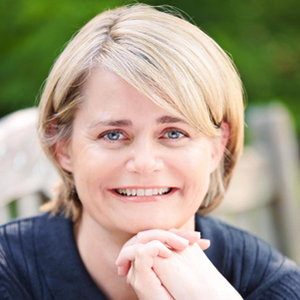
Amy Pittenger, professor and head, Department of Pharmaceutical Care and Health Systems, College of Pharmacy, began her governance work in 2016 as a member of the Faculty Consultative Committee (FCC), and was elected vice chair in 2018. When the previous chair accepted an administrative position in January 2019, Amy stepped gracefully into the role of chair of the FCC and SCC, a position she held through June 2020. In this role, Amy was deeply involved in many key decisions during an extremely eventful time period, including serving on the search committees that brought President Gabel and Provost Croson to the University. She was also instrumental in the expansion of childcare on campus, guiding the building renaming effort from an intractable standstill to a viable policy revision, and helping guide the University through the initial stages of the pandemic. Amy's nominators describe her as inclusive, analytical, selfless, and disarmingly humble.
The Big Issues
The work of the University and Faculty Senates is accomplished primarily through their standing committees and subcommittees. Faculty, academic professionals, civil service staff, students, and administrators have designated positions on most committees.
Student Conduct Code
Over the course of the past year, the Board of Regents Policy: Student Conduct Code underwent a comprehensive review. The Student Conduct Code is an extremely important policy, as it impacts every student who attends the University. The purpose of the Student Conduct Code is to convey behavioral expectations that embody the University’s learning mission while supporting students’ individual career and life goals. The student conduct process is primarily educational, while also serving to protect the University’s unique learning environment and the safety and success of the larger campus communities. A dedicated working group—comprising individuals from the Office for Student Affairs, the Office of the General Counsel, the Office of the Executive Vice President and Provost, and the Duluth Campus Office of Student Conduct & Conflict Resolution—conducted a robust consultation process.
Consultation occurred within several committees of the University Senate governance system, including the Student Academic Integrity Committee (SAIC), the Senate Committee on Student Affairs (SCSA), the Student Senate Consultative Committee (SSCC), and the Student Senate, along with other campus student governance organizations. Throughout the consultation of the proposed revisions, the working group emphasized that an educational mindset was the cornerstone of the revisions. Review through a lens of equity and diversity also resulted in revisions designed to elucidate the University’s commitment to helping all students understand the expectations of higher education institutions; removing non-inclusive language such as limited pronouns; and including a clear prohibition on discrimination. Another important update was the definition of amnesty to bring it into alignment with other existing University policies and to clarify medical amnesty versus amnesty for victims of sexual assault. The desired impact is to make it easier for students to report instances of sexual misconduct without fear of retaliation or sanction.
As the process played out over the course of the spring semester, student feedback and ideas were incorporated into the revision to better reflect student values, opinions, and concerns. The revisions received support from several committees and approval from the Student Senate, and the policy is expected to have a final review by the Board of Regents with proposed ratification at their June meeting.
Recommendations of the Task Force on Disability Accommodations in the Learning Environment
In May 2019, the University Senate approved a resolution from the Disabilities Issues Committee, which recommended implementation of professional development on accommodated instruction, testing, and best practices for supporting students with disabilities for University faculty, instructors, and student services staff systemwide. This resolution was the culmination of a year's worth of consultations with myriad stakeholders, including other senate committees, student groups, and administration. Though feedback was mostly supportive, committee members recognized the need for culture change around the issue of disability accommodations. In fall 2020, Provost Rachel Croson charged a task force to advise her regarding implementing the recommendations in the resolution. The members of the task force again engaged in extensive consultation with faculty and instructors from across the system. On March 31, 2022, Professor Ben Munson, co-chair of the task force, presented the recommendations to the Faculty Senate, which endorsed them enthusiastically. Many senators commented that their colleagues were eager for the professional development. Planning for building and implementing the professional development is now underway.
Although this was an extremely lengthy process (including some pandemic-related delay), it serves as a shining example of how a grassroots effort can begin in a governance committee and result not only in implementation of new programs or initiatives, but socialization of an idea such that by the time it is implemented, support for it is widespread.
The Ukraine Invasion
In response to Russia's invasion of Ukraine, both the Student Senate and the Equity, Access, and Diversity Committee (EAD) called for the University to condemn the invasion, divest from Russian interests, and provide resources to affected members of the University community. The Student Senate passed a resolution at its meeting on March 3, 2022, and EAD submitted a statement, co-signed by the Social Concerns Committee, to the University Senate at its meeting the same day. Both the statement and the resolution were met with overwhelming approval. In her response, President Joan Gabel notified stakeholders that the University endowment’s market value associated with Russian investments was reduced to effectively zero, down from approximately $236,000, as was the University of Minnesota Foundation endowment, down from approximately $3.4 million. Governance members remain concerned about the situation in Ukraine and are currently pondering further advocacy.
The Faculty Advisory Committee on the Health Sciences
The Health Sciences Faculty Consultative Committee (HS FCC) has been re-envisioned as the Faculty Advisory Committee on the Health Sciences (FACHS). This change is the culmination of months of discussion and deliberation among its membership, as well as consultation with both faculty leadership and University Senate Office staff. The repurposed charge was approved by the Faculty Senate at its March 31 meeting. FACHS reports through the Faculty Consultative Committee (FCC) and Faculty Senate, and is positioned to address the intersection of issues between the FCC, the Senate Committee on Faculty Affairs (SCFA), and work related to addressing fixed-term, clinical faculty issues, while also serving in an advisory capacity unique to Health Sciences units. The committee especially appreciates the guidance of former University Senate Office Director Vickie Courtney on the charge revisions, as well as the efforts of Erin Heath, current University Senate Office director, in guiding the revised charge through the approval process.
Committee membership includes ten voting faculty members made up of tenured/tenure-track faculty, fixed-term/contract faculty, and qualified academic professional staff with primary teaching and/or research responsibilities, with the majority of committee members being tenured/tenure-track faculty. Members will be appointed by or elected from each of the Health Sciences colleges, schools, and programs on the Twin Cities campus, in addition to representation from the Duluth and Rochester campuses.
FACHS will also include non-voting, ex-officio members from Health Sciences administration, who will be asked to engage with the committee to discuss issues of concern shared by both administration and faculty. The committee also expects to continue meeting with the Health Sciences Student Consultative Committee (HS SCC) and to engage in more two-way communication with faculty governance leadership across Health Sciences units, as well as to begin meeting with the executive vice president and provost and the vice president for research.
The committee is in the process of electing its leadership for the 2022-23 academic year, and is looking forward to engaging with the University Health Sciences community in this expanded way.
A View from the Inside: Namings and Renamings
Professor Mark Distefano, chair, All-University Honors Committee
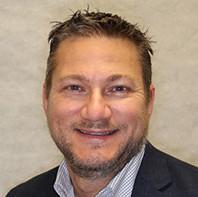
Following considerable discussion, consultation, editing, and rewriting over the past several months, the Board of Regents approved the updated Board of Regents Policy: Namings and Renamings at its meeting on February 11, 2022. This policy governs the naming, renaming, and retention of naming of significant University assets, and delegates the management of the process for the naming and renaming of these assets to the All-University Honors Committee (AUHC).
According to the approved policy, honorary namings shall remain for 75 years, unless a recommendation is made for retention. The AUHC is in the process of establishing a work group to draft the processes and criteria used for naming and renaming of buildings systemwide which have reached this 75-year threshold, as well as for reviewing and researching requests for building names to be retained or considered. This work group, composed of diverse representation from the AUHC; University Senate governance; and ex-officio membership with legal and University history expertise, will also be developing a process for including community input for naming or renaming of buildings. Work to consider specific namings and renamings is expected to begin this fall.
Updates regarding this important work will be provided through the University Awards & Honors Honorary Namings webpage. Continued engagement, both of the University and the greater community, are both appreciated and critical to its success.
University Senate Governance Working For U
Each senate has an executive—or "consultative"—committee. Members of the consultative committees are elected to represent the respective bodies.
Senate Consultative Committee (SCC)
During spring semester, issues related to budget and salary were a major focus area for the Senate Consultative Committee (SCC). Members discussed recent advocacy efforts around raising the student employee wage floor to fifteen dollars per hour and the implications of this proposed change with Julie Tonneson, vice president and budget director, University Finance. A recent resolution also advocated for financial relief for student employees, specifically for graduate assistants receiving stipends. After consultations on stipend issues with the administration and student leadership, the SCC presented a revised resolution at the April 21 University Senate meeting addressing the hardship highlighted in the original resolution. Additionally, in anticipation of the annual total compensation report to the Board of Regents in May, Mary Rohman Kuhl, senior director, Total Rewards, joined the committee for a broad discussion on compensation for faculty and staff at the University. Additional conversations on this topic will continue through the end of the spring semester.
The committee also began reviewing proposed changes to the University Senate Constitution, Bylaws, and Rules. These changes were proposed by the University Senate Constitution Working Group following a year-long review of the documents. The working group includes representatives from all of the consultative committees. Along with this review, the SCC is reflecting on its own composition and considering changes to the membership to make the representation more equitable. Proposals for both of these initiatives will be reviewed by the University Senate after the committee has concluded its work.
Faculty Consultative Committee (FCC)
The Faculty Consultative Committee (FCC) hosted a town hall at the beginning of the semester to hear from faculty senators about how the pandemic has impacted research and teaching, both positively and negatively, and what faculty governance should be advocating for to support faculty members at the University. These conversations have continued throughout the semester with the administration. Rebecca Ropers, vice provost, Faculty and Academic Affairs, and Keisha Varma, associate vice provost, Office for Equity and Diversity, visited with the committee to give their perspective on the current state of faculty affairs. The FCC will end the semester by co-hosting a creative workshop with the Office of the President. The purpose of this workshop, titled Faculty Design Thinking Forum: The Future of the Faculty Experience, is to generate forward-looking ideas and priorities around what it means to be a faculty member at the University of Minnesota.
In addition to these broader conversations about the future, the committee met with the Board of Regents leadership; the new chief auditor, Quinn Gaalswyk; and regularly with President Joan Gabel and Executive Vice President and Provost Rachel Croson. The committee reviewed and strongly endorsed the final recommendations of the Task Force on Disability Accommodations in the Learning Environment, presented by Professor Ben Munson, chair of that task force. Initial consultation also began with the Faculty Misconduct Task Force, chaired by Professor Jenn Goodnough. Finally, the committee drafted new language for their own charge. If approved by the Faculty Senate, the new language will add voting members from Duluth (Pharmacy and Medical School only) and Rochester to the FCC. The Faculty Senate is scheduled to vote on these changes at the start of the 2022-23 academic year.
Student Senate Consultative Committee (SSCC)
The Student Senate Consultative Committee (SSCC) and Student Senate addressed a variety of issues this semester and met with personnel from all over the University. Topics included an in-depth discussion about the unique accreditation process between the Twin Cities and Rochester campuses. Student leaders met with Joe Shultz from Institutional Analysis and Erin Slattengren from the Office of the Executive Vice President and Provost to better understand the benefits of joint accreditation, such as greater student access to library services and a larger pool of financial aid. The Student Senate also continued its consultation with University and Twin Cities campus leaders regarding the ever-changing landscape of COVID-19 policies and practices. During their March 3, 2022 meeting, senators were able to ask questions and provide feedback to Campus Public Health Officer Jakub Tolar regarding the possibility of amending the University’s mandate on face masks. Students found these interactions useful to better communicate with and advocate for their constituencies.
Additionally, the Student Senate worked collaboratively to pass multiple resolutions this semester. One such resolution, which was placed on a fast track for passage, dealt with student opposition to the invasion of Ukraine by Russia. The resolution called for the University to condemn the invasion, divest from any Russian or Belarusian monetary investment it holds, and provide resources to the University community members most impacted directly and indirectly by the war. Another resolution of note addressed the recently announced Native American Promise Tuition Plan. The plan calls for the University to expand its tuition waiver program to first-year undergraduate students and transfer students from Tribal colleges on all five system campuses who are enrolled citizens in one of Minnesota’s eleven federally recognized Tribal Nations. The resolution requested that the program be expanded to align more closely with the tuition plan currently in place at Morris; that it be made available to all current Native American undergraduate students enrolled at the University; and expand eligibility to include students outside of the state of Minnesota.
Civil Service Consultative Committee (CSCC)
The Civil Service Consultative Committee (CSCC) began the spring semester by reviewing a request from the Office of Human Resources (OHR) and the Academic Calendar Task Force to convert one of the four annual floating holidays to a fixed, University-wide holiday for Juneteenth. The CSCC had considerable discussion about this request, and ultimately sent a letter to President Joan Gabel and Vice President Ken Horstman requesting that, instead of converting an existing floating holiday, the administration add another fixed holiday to recognize Juneteenth. The administration is currently reviewing this request.
The CSCC also met with Regent David J. McMillan and President Gabel during the spring semester to share perspectives and feedback from civil service constituents about the employment experience at the University during the pandemic. Members asked both leaders how budget strategy could be shifted to address salary compression issues, which is a topic of frequent concern for constituents. Initial steps have been taken to begin planning for salary adjustments as the Market Refinement Project enters late stages. Mary Rohman Kuhl, senior director, Total Rewards, continued discussions about long-term budget planning at the spring Civil Service Senate meeting, and senators provided input on potential plans for a future market adjustment pool.
P&A Consultative Committee (PACC)
The P&A Consultative Committee (PACC) continued its focused advocacy on using institutional data and metrics to highlight the impact of the work of P&A employees at the University. Chair Scott Creer and Chair-elect Adolfo Carrillo Cabello referenced metrics gathered by Institutional Analysis, the Office of the Vice President for Research (OVPR), and research information management from the University of Minnesota Libraries, to highlight P&A employees and how their work supports the MPACT 2025 Systemwide Strategic Plan.
P&A leadership continues to advocate for the University to address the gap between current University compensation and market value for corresponding jobs. P&A leadership has had numerous discussions with OHR leadership regarding correcting the comp ratio at the University, especially for those job families which sit at 20% or more below market rate.
The P&A Promotion and Advancement Work Group was charged and had its first meeting this semester. The work group, which includes P&A Senate representatives and staff from OHR, will begin developing a system for advancement and promotional opportunities designed specifically for P&A staff.
Spotlight On: Edgar Arriaga
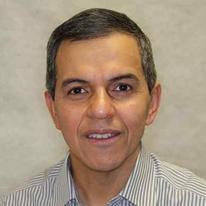
“In Guatemala,” said Edgar Arriaga (he/him/él), chair of the Campus Safety Committee, “education and opportunities are the privilege of few, and as a child I never imagined I could go to college.” As Edgar, with the support of his parents, made his way through increasingly ambitious levels of education, he was undeterred by the complexity of the situations he found himself in. “I think that complexity is beautiful, on all levels,” he told me.
When Edgar entered military school at age 12, he said, he was near the low end of the school's ranking system, which considered academic performance, physical fitness, and medical condition. He remarked that this ranking had an interesting effect on him: it made him decide he wanted to be the number one student. With determination, he became the number one student in the school within one year. With that achievement, of course, came responsibility—Edgar was the person responsible for coordinating and monitoring all the students in his class (about 40 people) which, he said, was his first foray into bringing a group to consensus.
During most of Edgar’s teen years and early adulthood, civil unrest and war prevailed in Guatemala, and with the United States’ involvement in that conflict at that time, he was not interested in furthering his education in the United States. Edgar shared with me the advice of his university chemistry advisor, who had studied at Stanford University and then returned to Guatemala to teach: “If your curiosity is not satisfied here, go elsewhere. Don’t be afraid.”
After receiving his bachelor of science degree in chemistry from Universidad del Valle de Guatemala, Edgar did end up traveling far from his home and his family to continue his studies. He obtained his PhD in chemistry from Dalhousie University in Nova Scotia in 1990, and moved on to post-doctoral work at the University of Kansas Medical Center (1990-91) and the University of Alberta (1992-98).
His graduate education in creating instruments and methods for chemical measurements, and his love for biology and medicine, took him to his first postdoc placement at the University of Kansas Medical Center. He would have liked to stay in Canada to work as part of a research team looking at human genome sequencing, among many things, but he was initially turned down. As a postdoc at the University of Kansas Medical Center, Edgar began asking intriguing questions. He would look at something extremely complex and ask, “How can we take the complexity of something like the human body and break it into smaller pieces? How can we actually look at the cells as building blocks and understand what’s happening?”
These questions resonated with the Canadian research team. Edgar asked himself what he could offer that the team didn't have yet. He realized that his Kansas experience made him ready to develop methods and instrumentation for single cell analysis; it was worth applying for a job a second time. In his second application, he highlighted research on methods for single cell analysis: “This is what I believe I can bring to the team.” This time, Edgar's application was accepted. He said, “It was one of the best academic years of my life.” He led a large team and ultimately stayed in Canada much longer than he had expected to.
As he looked to the next part of his journey, Edgar applied for teaching positions, and, with some hesitation, considered possibilities in the United States. He explained that, as he understood more about the complexities of a country as large as the United States, his perceptions about the country began to shift. “Minnesota looked a lot like Canada, to be honest,” Edgar said. He accepted a position at the University of Minnesota in 1998 and was especially drawn to the multidisciplinary opportunities the University offered.
When I asked him what he felt his most lasting contributions to the University have been, he took a moment before answering, wanting to, I think, give credit where it was most appropriate. In terms of contributing to the Department of Chemistry, he said that establishing the first research program focused on bioanalytical chemistry (analysis of biological samples) was something he felt was an important contribution. As for the University as a whole, Edgar feels the formation of the Diversity and Inclusivity Alliance, in the College of Science and Engineering, has been a significant contribution on his part. He would not claim to be the founder of the alliance—it was student groups who began the conversation, he emphasized—but he would admit to being a catalyst. Edgar said it was very important to him, in forming the alliance, to network and communicate with a very large group of people, in the college and beyond, in order to identify common grounds—another example of Edgar’s desire to build consensus. “I think that the wellbeing of people is critical to the work we do,” he added.
While long distances and lack of funds prohibited Edgar from visiting his family in Guatemala as frequently as he would have liked when he was a student, things have now come full circle. He and his husband and daughter visit Guatemala as frequently as they can. “Being with family is worth all the money in the world,” Edgar smiled.
--Geanette Poole, University Senate Office
University/Faculty Senate Recaps
January 20, 2022
On January 20, a special meeting of the Faculty Senate was held in order to vote on proposed revisions to the Twin Cities/Rochester and Morris academic calendars for 2021-22 and 2022-23, in order to make Juneteenth (or its observed holiday) a non-instructional day. The proposal was overwhelmingly approved.
March 3, 2022
University Senate business on March 3 included approval of a resolution on caste-based discrimination, which was discussed at the University Senate meeting on December 2, 2021. The main item on the Faculty Senate agenda was discussion of a resolution on graduate assistant fees.
March 31, 2022
On March 31, Deans Andrew Alleyne (College of Science and Engineering) and Nisha Botchwey (Humphrey School of Public Affairs) were formally introduced to the University Senate. At the Faculty Senate meeting, senators approved the recommendations of the Task Force on Disability Accommodations in the Learning Environment.
April 21, 2022
At the April 21 University Senate meeting, senators approved three resolutions on graduate student fees, which were based on the original resolution discussed on March 3 and incorporated feedback that arose during the consultation process. In addition, Professor Will Durfee, chair of the Core Curriculum 2025 Committee, collected preliminary input from senators regarding new or revised general education requirements for Twin Cities undergraduate students. The Faculty Senate meeting consisted of routine business, including approving a change to the membership composition of the Senate Committee on Educational Policy (SCEP) and the slate of Twin Cities candidates for the FCC for next year.
A Message from the Director
Erin Heath, director, University Senate Office
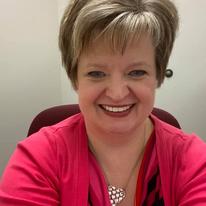
I don’t know about you, but I am wondering where “spring” semester went—that is intentionally in quotes since, as of this writing, we are still waiting for the weather to match up with the calendar. Someday.
I began serving as director of the University Senate Office and University Awards and Honors on December 6, 2021—almost exactly five months ago. What I have observed so far is that: (1) practicing effective governance is a far more complex process than meets the eye; (2) the continued interest and engagement of all participants—including senators, committee members, leadership, and key stakeholders—is critical to its continued success; and (3) it is hard work that I deeply care about and enjoy—as messy as it can be at times.
One particular highlight was having the opportunity to formally recognize significant contributions to University Senate governance through the Vickie R. Courtney Award for Outstanding Service to University Senate Governance, named after the former longtime director of the University Senate Office. I continue to be appreciative of Vickie’s mentorship. Her guidance has been immensely helpful to me in these first months as director.
In the coming months, the University Senate Office team and I will continue working to further clarify and share procedures, practices, and processes intended to provide guidance to those who participate in or work with shared governance. I am looking forward to meeting and working with incoming governance leaders as they are oriented to governance work, while also looking ahead to future priorities—some known (continued policy consultation, campus safety, and namings and renamings, to name a few), and some yet to be determined. I am also hopeful that we may achieve some sort of shared “normal” as we work together to redefine what it means to be a University community.
For those of you who are concluding your governance work: thank you for your service. Your contributions have been invaluable to the University. A special thank you to our outgoing committee chairs: Etty DeVeaux (Senate Committee on Committees), Mark Distefano (All-University Honors Committee), Panhia Her and Savannah Middlestead (co-chairs, Health Sciences Student Consultative Committee), Timothy LaPara (Intercollegiate Athletics Committee/Faculty Academic Oversight for Intercollegiate Athletics Committee), Barbara McMorris and David Jacobs (co-chairs, Faculty Advisory Committee on the Health Sciences), Cody Mikl (Senate Committee on Student Affairs), Gopalan Nadathur (Academic Freedom & Tenure Committee), Lynette Renner (Campus Committee on Student Behavior), Myles Shaver (Retirement Subcommittee), and Becky Yust (Senate Judicial Committee). Our sincere appreciation to our outgoing consultative committee leaders: Sarani Millican (Student Senate Consultative Committee/Student Senate); Missy Juliette (Civil Service Consultative Committee/Civil Service Senate); Scott Creer (P&A Consultative Committee/P&A Senate); and last but not least, Ned Patterson (Senate and Faculty Consultative Committees).
To those of you who are beginning your journey: welcome. We look forward to working with you, and know your willingness to serve the University in this way is greatly appreciated. Many thanks in advance to our new committee chairs: Adrienne Conley (Senate Committee on Student Affairs), Timothy Johnson (All-University Honors Committee), Ron Krebs (Senate Judicial Committee), Aileen Lyle (Retirement Subcommittee), Alon McCormick (Senate Committee on Committees), Susan Meyer Goldstein (Intercollegiate Athletics Committee/Faculty Academic Oversight for Intercollegiate Athletics Committee), and Eric Van Wyk (Academic Freedom & Tenure Committee). We also extend a special welcome to our new consultative committee leaders: Tony Fussy (Civil Service Consultative Committee/Civil Service Senate), Adolfo Carrillo Cabello (P&A Consultative Committee/P&A Senate), and Colleen Flaherty Manchester (Senate and Faculty Consultative Committees).
Wishing you all a restful and healthy summer.